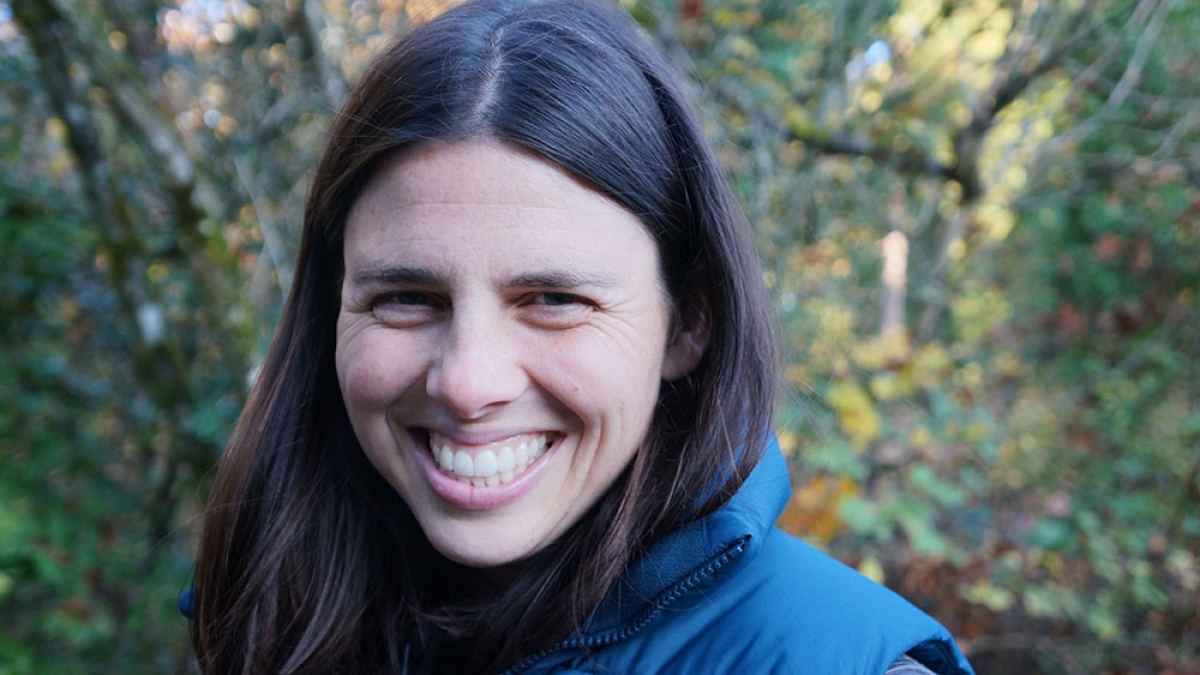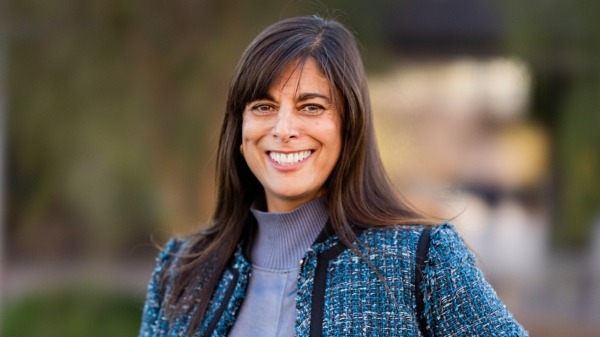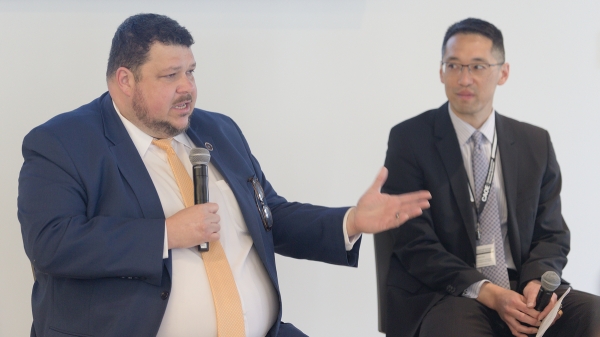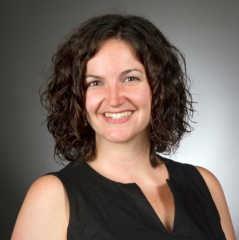New ASU research center promotes inclusive STEM education

Sara Brownell, associate professor in the School of Life Sciences and director of the Research for Inclusive STEM Education Center.
The Research for Inclusive STEM Education Center, a newly launched Arizona State University initiative, is striving to make higher education more inclusive through innovative research, ongoing events and campuswide interventions.
The center was founded by Sara Brownell, associate professor in the School of Life Sciences and director of the center, and Kristen Parrish, associate professor in the School of Sustainable Engineering and the Built Environment and associate director of the center.
The two first met through a peer leadership program and quickly realized they were both interested in diversity, equity and inclusion in higher education. As women in male-dominated fields, Brownell and Parrish said they have both experienced what it’s like to be a minority but feel their experiences are only the tip of the iceberg when it comes to inclusion in higher education.
“In my case as a straight, white woman, being female is about the only identity where I'm a nonmajority within engineering,” Parrish said. “My own experience feeling like an ‘other’ or an ‘only’ would be amplified if I also had some intersectional identities that made it even harder. It’s my job and my duty to try to amplify other voices and recognize that we need to be more inclusive. I think it’s important to recognize the role that we as faculty, or more broadly speaking as institutions, have to meet students wherever they're at. We are the ones that need to take on responsibility for changing.”
After a year of planning and discussion, Brownell and Parrish launched the center as a way to extend the reach of the work they were already doing and become a national research hub. Initially the center was going to focus primarily on science, but after further conversation they realized the project could have a greater impact if it included disciplines within science, technology, engineering and mathematics (STEM).
Kristen Parrish, associate professor in the School of Sustainable Engineering and the Built Environment and associate director of the Research for Inclusive STEM Education Center.
“We all know it's often easy to get in our own little silos in our departments or units. We forget that there's this broader university and a bunch of folks doing similar and interesting things that could inform our own work,” Brownell said. “I think that is a great reason to have the Research for Inclusive STEM Education Center be across the university, rather than just science-focused. By bringing folks together we hope to foster dialogue and discussions that will elevate the quality of our undergraduate STEM education.”
The center has several goals including identifying inequities that are currently in classrooms across the university and implementing solutions, conducting and producing innovative research on ways to make undergraduate STEM classrooms more inclusive, and educating and informing STEM faculty about this research and how they can better serve all students. Their work is meant to not only improve inclusivity within the ASU community, but also inspire change at institutions nationwide.
“So many of our faculty have been working to achieve greater access and inclusion through their research, outreach and creative efforts,” said Nancy Gonzeles, dean of natural sciences in The College of Liberal Arts and Sciences. “The Research for Inclusive STEM Education Center will give this work a home and allow for increased cross-discipline collaboration that will put ASU at the forefront of inclusive STEM education research. But ultimately the work of the center is to benefit our students and provide them with the tools they need to succeed.”
One of the center's early initiatives has been the development of a series of virtual events focusing on anti-racism and racial justice. Created in response to the resurgence of the Black Lives Matter movement, protests against the killing of George Floyd and other national issues, the “A call to action: RISE Up for racial justice,” events range from discussions and workshops to student listening sessions and seminars. The events have been well-received, with the first seminar in August having an attendance of more than 850 people. Brownell and Parrish said they feel these events are a step in the right direction toward creating a more inclusive campus.
“We decided to develop this series to help promote awareness and provide information around what it means to be anti-racist,” Brownell said. “We don't think that these events are going to solve the problems, but we do think that it's an important first step in a much longer series of conversations and concrete actions to help our university, specifically STEM environments, become anti-racist.”
Moving forward Brownell and Parrish plan on continuing to host these kinds of events while also focusing their efforts on research. They are currently working on a National Science Foundation grant-funded project that addresses how students with disabilities at ASU and across the nation interact with active learning environments. The team of researchers who are core members of the center is also expanding, with the recent addition of Katelyn Cooper, a newly appointed assistant professor in the School of Life Sciences.
Upcoming “RISE Up for racial justice” events:
Language matters: Considering racial microaggressions in science
Discussion
When: Thursday, Oct. 8, 1:30 p.m. (CT)
Speakers: Colin Harrison, Georgia Tech; and Kimberly Tanner, San Francisco State University
Zoom: asu.zoom.us/j/97235381892
But is it really “just” science? Engaging critical race theory to unpack racial oppression with implications for Black student science engagement
Seminar
When: Wednesday, Oct. 21, 11 a.m. (CT)
Speaker: Terrell Morton, University of Missouri
Zoom: asu.zoom.us/j/92158713296
Black women and belongingness: An interrogation of STEM education as a white, patriarchal space
Seminar
When: Thursday, Nov. 19, 2 p.m. (CT)
Speakers: Luis Leyva, Vanderbilt University; and Nicole Joseph, Vanderbilt University
Zoom: asu.zoom.us/j/94696434185
An exploratory investigation of the experiences of Black immigrant women in undergraduate STEM
Seminar
When: Tuesday, Dec. 1, 2 p.m. (CT)
Speakers: Meseret Hailu, Arizona State University; and Brooke Coley, Arizona State University
Zoom: asu.zoom.us/j/98196412224
More Science and technology

The science behind chronic stress
Stress comes in many shapes and sizes. There’s the everyday stress of preparing for a final exam or being stuck in traffic. And…

ASU planetary scientist to be inducted into the National Academy of Sciences
The National Academy of Sciences is inducting School of Earth and Space Exploration Director Meenakshi Wadhwa into the 2023 class…

Unlocking the potential of AI for homeland security
“Can we do what we're doing now cheaper, more efficiently, more effectively?” Adam Cox, director in the Office of Strategy and…
